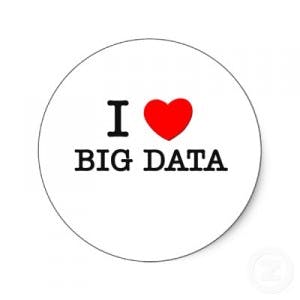Nearing the end of 2014 and heading into 2015, we’re now firmly entrenched in an era in which widespread technology and the availability of data are changing just about everything in business.
Now that professionals of all kinds can so easily access relevant information about their trade with just the click of a mouse, this capability is making a profound difference with everyone.
While most HR professionals still don’t quite understand Big Data, advanced analytics are clearly making their mark in human capital management.
How can HR take the power back?
On the surface, you’d expect there to be myriad ways.
- Recruiting professionals can tap into information about what types of job candidates make good hires.
- Operational managers can take a look at what makes their employees become engaged and productive.
- HR leaders can access data on big-picture questions like how each of their processes will evolve over the years to continue alignment to the ever-changing goals of the business, and ultimately be proactive in driving decisions that impact talent planning and deployment.
Unfortunately though, according to Bersin by Deloitte, many employers fall short in all of the above areas.
They found that only 14 percent of HR organizations in the U.S. have been able to use advanced or predictive analytics to aid their talent decision-making. Bersin by Deloitte Analyst Karen O’Leonard, who studies trends in enterprise learning and talent management, says this isn’t good enough. She writes:
Despite the prognostications that 2014 would be ‘the year of predictive talent analytics,’ things haven’t changed all that much. If HR continues to drag its feet, it risks losing control over its data, and its chance to gain some real power within the organization.”
So how can HR take back the power where data is concerned? The following four ideas should help.
1. Begin with strong leadership
One of the main problems with the HR big data movement is that companies don’t know who’s in charge.
Is it the CFO? A technical manager? Someone on the HR team with a particular interest in the data at hand? It’s difficult to get started without an established head honcho.
2. Start small
Begin with one simple objective. For example, take a well-known pain point for the company and find a way that data can help address it.
Data success may not come overnight, but tackling one goal at a time is a good start.
3. Build a capable team
Eventually, you’ll need more capable people by your side.
Find talented professionals among your ranks who are passionate about data and show an interest in fixing business problems. You might be able to build a strong, capable team of people.
4. Establish the business case
In the long run, your goal should be to make analytics a firmly entrenched part of your business.
That will require support from your CEO and CFO, so plant the seeds early and begin to show them that data can make a real difference.
I fully agree with the analysis by Karen O’Leonard. You can revisit my argument about why HR is not quite ready for Big Data yet here.
This originally appeared on Ceridian’s HCM blog.
